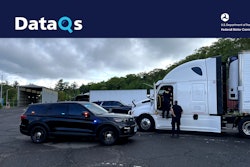Trucking news and briefs for Thursday, Sept. 26, 2024:
Legislation aims to help vets obtain CDLs, eliminate redundant background check
Congress took action on two trucking-related bills Wednesday, moving one to the president’s desk for a signature, and moving another through the committee stage.
The U.S. House on Wednesday passed the Veteran Improvement Commercial Driver License Act, which will ensure veterans can utilize their GI benefits at new branches of CDL schools whose primary institutions have already received regulatory approval.
Currently, if an approved trucking school opens a secondary facility in a new location, existing laws require the U.S. Department of Veterans Affairs (VA) and state regulators to deny the branch’s ability to receive GI benefits for two years.
The bill, which was previously passed in the Senate and will now move to President Joe Biden’s desk to be signed into law, would remove that requirement as long as it uses the same curriculum as the primary institutions that have already been approved by the VA and state agencies.
[Related: Senators reintroduce bill to ease CDL access for military vets]
A separate bill that would eliminate redundant fees and background checks for workers seeking multiple TSA-managed credentialing programs was also passed this week by the House Homeland Security Committee.

The Transportation Security Screening Modernization Act would allow workers such as truck drivers to use one background check for multiple TSA programs, such as the Transportation Worker Identification Credentials (TWIC) program and the Hazardous Materials Endorsement.
A Senate version of the bill has previously passed the Senate Committee on Commerce, Science & Transportation to advance to the full Senate. The bill must now pass the full House and Senate before moving to the president’s desk.
[Related: Congress eyes TWIC/hazmat changes]
Former fleet owner sentenced for defrauding shippers
A former fleet owner was sentenced Sept. 11 for his role in a scheme to defraud shippers.
The U.S. District Court for the Southern District of Ohio sentenced Gurtej Singh, also known as Gary Bhullar, to a year in prison, three years of supervised release, a $100 special assessment, and 100 hours of community service.
On Feb. 6, Singh, who owned and managed several trucking companies in Ohio and California, pleaded guilty to committing wire fraud in connection with a scheme to defraud shippers.
The Department of Transportation Office of Inspector General said an investigation revealed that from April 2018 until May 2022, Singh would charge shippers a premium rate to reserve an entire trailer to ensure their load would not be mixed with cargo from other shipments. However, Singh and others surreptitiously opened sealed trailers and removed goods to illegally consolidate loads to save costs, often failing to deliver many goods to their final destination.
Singh also filed an application with the Federal Motor Carrier Safety Administration falsely stating that he did not have relationships with other FMCSA-regulated entities.
Moving company employee sentenced for overcharging customers, holding goods hostage
A New York district court earlier this month sentenced a moving company employee for her role in a household goods moving fraud scheme.
On Sept. 9, the U.S. District Court for the Eastern District of New York sentenced Paula Jones to three years in prison, two years of supervised release, forfeiture of $50,000, and a $100 special assessment.
According to the Department of Transportation Office of Inspector General, between approximately 2016 and 2020, Jones was an operations manager for various moving companies, including Brooklyn-based Great Movers, Inc. Jones pleaded guilty on Nov. 7, 2023, to conspiracy to commit wire fraud.
As alleged in a previously filed superseding indictment, Jones along with co-conspirators defrauded customers by misrepresenting the estimated charges for moving services, requiring customers to pay additional fees, demanding payment before delivering goods, refusing to return customers’ belongings, and threatening to sell the goods at auction if customers did not pay the fees.
[Related: How truckers can beat predatory towing: Egregious practices, bills, more]
PrePass adds GPS verification to toll management service
Weigh station bypass and toll management provider PrePass this week introduced its new GPS Toll Verification service, which the company said “will save fleets considerable time and money by matching GPS locations to toll charges, thereby proactively identifying potential billing inaccuracies.”
By leveraging the PrePass app, GPS technology that many fleets already rely on, and a proprietary machine-learning engine, GPS Toll Verification automatically detects and highlights inaccurate toll charges.
“Our customers often face challenges in understanding and validating charges from the various tolling agencies their fleets use,” said Chris Murray, President of PrePass. “The ability to automatically verify toll charges using GPS technology and PrePass’ proprietary matching engine, not only provides them with confidence in their overall tolling expenses but also translates to significant cost savings, offering one less thing to worry about in their day.”
Available on Android, iOS, and integrated telematics platforms, the service ensures that fleets only pay for the tolls they incur, leading to substantial cost savings.
The GPS Toll Verification process will deliver insights that empower fleets to manage tolling expenses more effectively or to initiate tolling disputes, which PrePass can process on behalf of its customers. The INFORM Tolling Analytics Dashboard provides PrePass customers enhanced visibility into their toll charges and the status of disputes.
With GPS location data generated from the PrePass app or a telematics service provider, fleet managers can confidently validate their toll charges, ensuring they are not overpaying and reducing the administrative costs and complexity of managing them.
[Related: Toll roads on the rise: What's an owner-operator's best electronic-collection option?]












